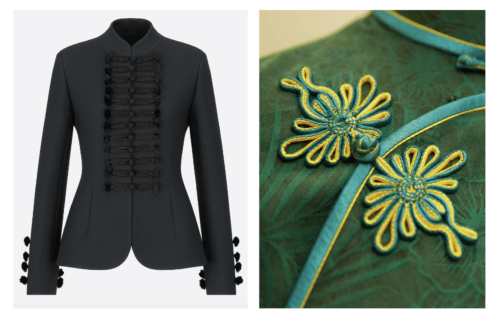Netizens angry over Mercedes-Benz ad depicting Asian eyes
A story from the The China Project A.M. newsletter. Sign up for free here.

Mercedes-Benz removed an advertisement on Monday after Chinese internet users expressed anger over the car company’s depiction of Asian eyes in the video.
- The video depicts a model of Asian descent with makeup that appears to accentuate the oblong shape of her eyes. It was posted on the German carmaker’s official Weibo account Saturday and later removed. Mercedes-Benz did not respond to a request for comment from Bloomberg.
- The Global Times, China’s state mouthpiece, said the video aroused “a heated discussion from netizens” over the “Western stereotypes about Asian people.”
- In the 1970s, the English author Sax Rohman created the American super-villain “Fu Manchu” known for his “squinty eyes” 眯眯眼 and “droopy beard,” both of which became a popular caricature of Chinese people in the Western imagination. Was this another instance of reinforcing those stereotypes? Netizens were conflicted.
The context: The collision between foreign brands and China’s growing market nationalism continues to intensify. The long list of companies that have come under fire includes Dolce & Gabbana, H&M, Nike, the NBA, etc. Last week, Walmart China was embroiled in a controversy over allegations that it had ceased selling items from Xinjiang at its Sam’s Club grocery stores. But in recent months, scrutiny over the appearance of models in advertising has spiked:
- In late November, the Chinese photographer Chen Man was forced to apologize for perpetuating Western stereotypes of Asian faces during her recent photoshoot with French luxury fashion house Dior.
- Also in November, Christian Dior was forced to stop using a photo of a model that state media said was “smearing Asian women.”
The takeaway: As domestic consumers increasingly become dissatisfied with foreign brands, homegrown Chinese alternatives are sprouting up in the hopes of capitalizing on the nationalist trend. The “China chic” (国潮 guócháo) fad is one big factor worth adding into any China investment thesis in the coming years. In the aesthetics category, Hangzhou-based Florasis is already making waves selling their own vision of what Asian beauty should look like. They outsold all other Chinese brands in the beauty category on Alibaba’s Tmall this year.






